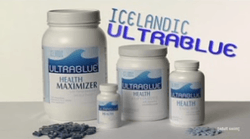Infomercial
An infomercial is a form of television commercial, which generally includes a phone number or website. Most often used as a form of direct response television (DRTV), long-form infomercials are typically 28:30 or 58:30 minutes in length. Infomercials are also known as paid programming (or teleshopping in Europe). This phenomenon started in the United States, where infomercials were typically shown overnight (usually 2:00 a.m. to 6:00 a.m.), outside of peak prime time hours for commercial broadcasters. Some television stations chose to air infomercials as an alternative to the former practice of signing off. By 2009, most infomercial spending in the U.S. occurs during the early morning, daytime and evening hours. Stations in most countries around the world have instituted similar media structures. The infomercial industry is worth over $200 billion.
While the term "infomercial" was originally applied only to television advertising, it is now sometimes used to refer to any presentation (often on video) which presents a significant amount of information in an actual, or perceived, attempt to promote a point of view. When used this way, the term may be meant to carry an implication that the party making the communication is exaggerating truths or hiding important facts. Often, it is unclear whether the actual presentation fits this definition because the term is used in an attempt to discredit the presentation. Hence, political speeches or conventions may be derogatorily referred to as "infomercials" for a specific point of view.

Paid Programming (TV pilot)
Paid Programming (also known as Paid Programming: Icelandic Ultra Blue or Icelandic Ultra Blue) is a television pilot for Cartoon Network's late night programing block, Adult Swim. The pilot episode of Paid Programming premiered, unannounced, in the United States on November 3, 2009, and was then re-aired every Tuesday-Friday until December 4, 2009.
Paid Programming is a parody of infomercials and was created and written by H. Jon Benjamin and David Cross, and features amateur actors from Central Casting. Although the pilot was never picked up for a full series, it received a positive reception in London when screened at monthly comedy event called "Popcorn Comedy night". Adult Swim continues to periodically rebroadcast the pilot episode.
Production
Paid Programming was created by H. Jon Benjamin and David Cross, who wrote and directed the pilot episode. Paid Programming was first announced at Dragon*Con 2009 in September 2009, where it was described as an "infomercial within an infomercial"; no other information was revealed at that time. Although Benjamin and Cross make voice cameos in the pilot, the cast of Paid Programming consists mainly of "non-recognizable" amateur actors from Central Casting. The pilot does not feature any credits or production cards, and ended with a cliffhanger. In a 2010 interview David Cross mentioned it was their intent to make Paid Programming as similar to a real infomercial as possible, in order to trick unsuspecting viewers into thinking it's a real infomercial; and was upset that the project was announced at Dragon*Con. According to Benjamin and Cross, Adult Swim was only "semi-committed" to the project, and was worried that it would do poorly ratings wise.Paid Programing was not picked up as a full series, as revealed when Benjamin referred to it as an "abject failure".
Podcasts:

-
by That Dog
Paid Programming
by: That DogPaid programming helps me sleep at night, tucked in bed so tight.
Paid programming helps me sleep at night, cures me of my fright.
I'd like to see Cher doing her hair on the air.
And I'd like to see Richard Simmons dealing a meal and helping to heal.
Paid programming helps me sleep at night, tucked in bed so tight.
Paid programming helps me sleep at night, cures me of my fright.
I'd like a Strawberry Whip De-lite to give me pleasant dreams at night.
And I'd like to see the vaccuuming haircut machine going mainstream.
Paid programming helps me sleep at night, tucked in bed so tight.
